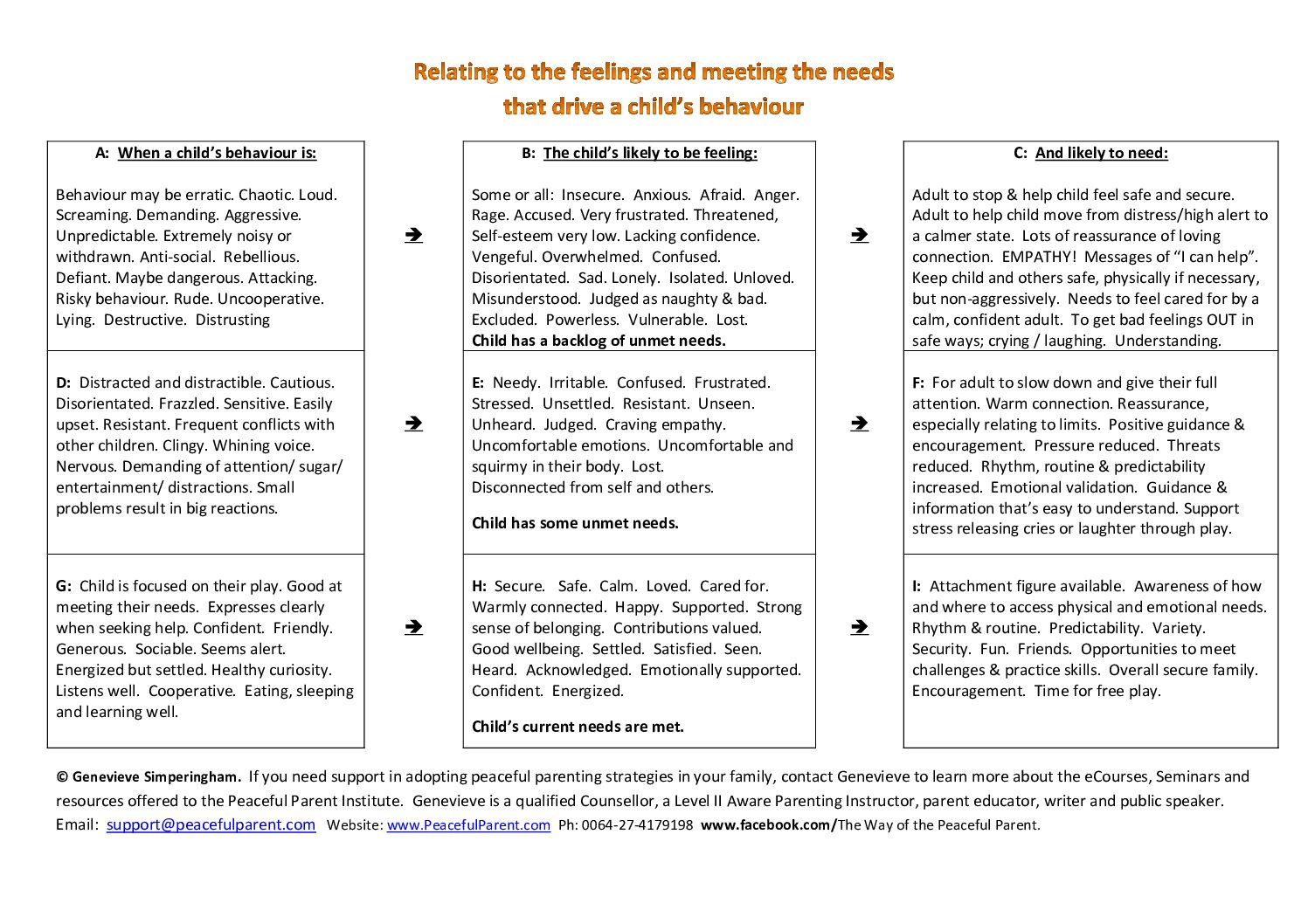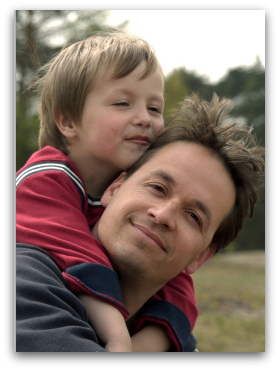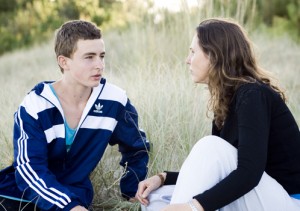Peaceful Parenting to create a more peaceful world.
Key Principles: The concepts and approaches that participants are presented in our Parenting Seminars are based on a combination of the research findings from attachment science, active listening skills, parenting through connection, heart-based wisdom (listening to your heart and your child’s heart), problem solving skills, developing self-care and emotional sef-regulation skills for self as a parent, while modelling and teaching your child self-regulation skills and a deeper understanding of the feelings and unmet needs that drive a child’s behaviour.
On the seminars and workshops, Genevieve gives information and examples from her years of working with individuals, children and families. She also shares her in-depth study of the work of Dr. Aletha Solter, psychologist and author of “The Aware Baby”, “Tears and Tantrums” and “Raising Drug-Free Children”, the work of Daniel Siegel, psychiatrist, author of “Parenting from the Inside Out”, John Bowlby’s Attachment Theory, Bruce Perry, founder of the Child Trauma Clinic and others in the field of cutting edge research in child development, the work of Robin Grille, author of Parenting for a Peaceful World and Heart to Heart Parenting.
More about the Peaceful Parent Philosophy:
As opposed to focusing on the child’s behaviour in isolation, we give a broader understanding of the dynamics between parent / educator and child. The mood between the parent and child is the main factor in determining a child’s “good” or “bad” behaviour. Although using rewards or threats may appear to work in the short term, we teach that adopting a punishment free approach to parenting is a key factor in establishing relationships that are based on trust and mutual respect and for creating a good team spirit in the family. Most parenting techniques that focus on controlling the child’s behaviour through threats, bribes or punishments elicit obedience rather than willing co-operation. We outline some of the pitfalls of the coercive techniques.
Not only is there an alternative to punishment, it is the only alternative that leads to long term peace and harmony in families and effectively meets children’s emotional needs including developing their emotional intelligence and fostering unconditional love.
Not only is parenting without punishment an option, but it is essential to supporting the child to make choices from a place of integrity rather than fear of disapproval or desire for reward. Creating a culture of mutual respect, listening, sensitivity to each person’s feelings and diplomatic problem solving fosters communication in the family that’s based more on integrity, respect and compassion.
Adopting a democratic mutual problem solving approach to parenting lifts both the adult and child out of the power struggle!
Our approach differs to many more traditional approaches in that parents are taught to relate primarily to the feelings beneath the behaviour and to respond primarily to the feelings. Many parenting approaches focus on changing a child’s behaviour using techniques that involve time out and creating artificial consequences for the child.
In the talks and workshops, we explore some of the negative side effects of approaches that involve punishments, threats or bribes. One of the simplest negatives is that we teach our children through modeling first and foremost, hence when we get children to act the way we believe they should act through manipulation, threats, bribes and punishments of any kind, we are teaching them that this is how they should be in relationships, this will become their mode of making others act the way they want them to act – they will naturally think and feel in terms of manipulating, bribing, threatening and punishing. If they are then being advised by their parents not to attempt to manipulate others (coercion), the child is receiving two opposing messages, one from their parents words, the other from their parent’s actions and day to day communication with the child.
Clear patient communication:
The overall approach being presented is a much healthier model based on clear and patient communication and trust in the child’s basic goodness. Limits are set by the parent with confidence, giving the child a very clear understanding of what the limits are, while remaining in a warm connected and supportive relationship with the child. It is a model that constantly models a much more mature form of communication. These approaches foster connection, confidence, trust, lateral thinking, problem solving skills and conflict resolution skills. It is a model that aims to both meet the needs of all involved, parent and child and also teaches flexibility and adaptability..
Aggression, hyperactivity
and the speaking with “whining” tones in children are generally symptoms of the child’s need to release their pent up stresses and frustrations. When we can give children the safety and permission to feel and express their feelings, children can return to balance and again live happily in the moment. When children are emotionally settled and calm, they naturally can give their full attention and enthusiasm to their daily play and learning. On the other hand, the child who carries a backlog of invalidated and unreleased tears and fears is less available mentally and emotionally and will be generally frustrated, unsettled or inhibited.
The parent’s need for emotional support and release is just as big and just as valid as the child’s
and the first is actually a pre-requisite for the second. For this reason, we also offer understanding about how the patterns from the parent’s own childhood influence how we parent as adults. Although most parents endeavor to parent with patience and kindness, all parents understand that putting the principle into practice is no easy task and it’s unfair to “expect” ourselves as parents to just be calm and non-critical without a lot of learning, support and quite a lot of processing of our own emotional hurts.
Recommended Reading:
Genevieve and Dan recommend interested participants to get hold of some of the books on our Books page. They are all books that work from a similar value system of non-violent communication, parenting without punishment and parenting through connection. We particularly recommend one or more of the books of Dr. Aletha Solter. Dr. Solter is a Swiss/American developmental psychologist and author of four parenting books. Dr. Solter is recognized internationally as an expert on attachment, trauma, and non-punitive discipline.
Based on cutting-edge research and insights into child development, Dr. Solter’s “Aware Parenting” concepts question most traditional assumptions about raising children, and proposes a new approach that can profoundly shift a parent’s relationship with his or her child. Parents who follow this approach raise children who are bright, compassionate, competent, nonviolent, and drug free.
Some of the key aspects in Aletha Solter’s books are the acceptance of emotional release, awareness of babies’ and children’s vulnerability to stress and trauma, recognition of repressed emotional pain as a contributing factor in many behavioural and emotional problems, recognition of the healing effects of laughter, crying, and raging, respectful, empathic listening and acceptance of children’s emotions.
Aware Parenting also supports natural childbirth and early bonding, plenty of physical contact (including night-time closeness), breast-feeding, prompt responsiveness to crying, sensitive attunement, and non-punitive discipline — no punishments of any kind (including “time-out” and artificial “consequences”), no rewards or bribes, searching for underlying needs and feelings, non-violent communication, peaceful conflict-resolution (family meetings, mediation, etc.).
These seminars and coaching_sessions offer an invaluable opportunity to take an objective look at the real issues and the real potential within your parent child relationships.
The courses offer a time to take a deeper look at your feelings and needs as a parent or caregiver. We cannot effectively meet our children’s deeper emotional needs if we have not met our own emotional needs. Despite our deep desire as parents to give our children the very best that they deserve, the reality is that until we learn healthier ways of interacting, we continue to act and react out of deep-rooted patterns and beliefs ingrained in us from our own childhood years. Understanding this actually allows us to have more patience and compassion for ourselves as well as giving us the hope that we can indeed change the patterns.
Changing Old Patterns of Behaviour: Through Genevieve’s counselling work with adults and children, she has a deep understanding of how challenging, as well as how rewarding, the process of changing our parenting patterns can be. The reality is that for a parent to parent from the heart in a kind-hearted manner without using punishment, a parent needs to have access to the correct information and some support in putting it into action. For most parents, being calm, patient and clear enough to parent in this way is easier said than done. It is a state that is reached through a journey of learning and increased self-awareness.
Change happens slowly, one step at a time: Parents can be very hard on themselves if they revert back to their old methods of yelling and using punishments and threats despite having read a positive parenting book or attending a course. They can either give up on themselves or on their new methods. Parents need to understand that they can’t change decades of conditioning overnight. Even though parents often revert back to old unhealthy habits, with new information and support parents can observe their behaviour in a new way, have a better understanding of exactly why the old behaviour is unhealthy and have an awareness of what the healthier alternative behaviour should be. Giving our kids the patience and kindness that they need and deserve is only possible when we are putting equal focus on learning to become kinder and more patient with ourselves!
It is extremely liberating to realize why you and your child act in the ways that you do and to realize that you can choose to create a more positive, empathetic and loving relationship for all concerned.
To parent, teach or be with children in a way that truly honours the child’s individuality, we need to connect back emotionally and energetically with how we as children viewed and experienced the world. The deepest way to truly understand the needs of a child is through reconnecting with our own childhood.
Healing our relationship with the children in our world truly can heal broken hearts and soften hardened hearts.
Because Genevieve was previously a professionally trained energy healer in her twenties, she is very aware of the connections between the physical ailments that a child presents and the places in their body where the flow of their emotions has become blocked. She has a clear understanding of the direct connections between emotional health and physical health.
She can see the obvious connections between a child’s blocked emotional energy and blocks in their chakras, their body posture and natural movements of energy around the body.
“In my private practice, it warms my heart hugely to witness the huge benefits that families experience when parents learn a parenting approach of actively listening to and validating the child’s emotions.”









